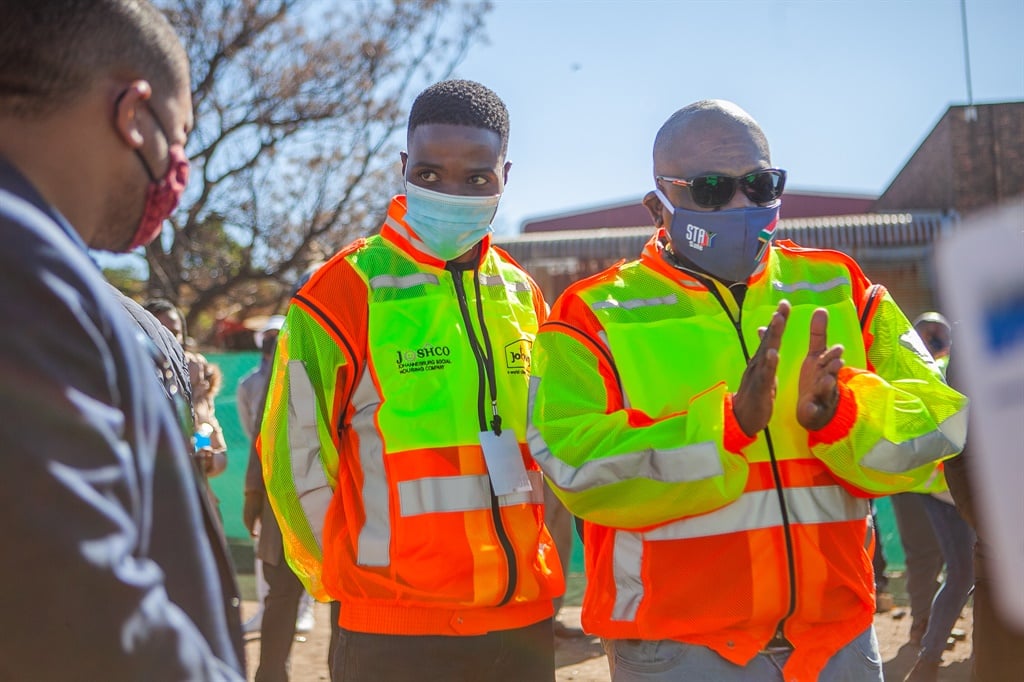


Johannesburg mayor Geoff Makhubo at the construction of the Temporary Relocation Area at Marlboro, Johannesburg.
Sharon Seretlo, Gallo Images
- Johannesburg Mayor Geoff Makhubo has unveiled the land which will be used to house relocated residents in congested Covid-19 hotspots.
- Makhubo said 1 600 people in Wards 109 and 108 would be relocated in the next four months.
- He said this was because people were unable to socially distance or isolate properly during the pandemic.
Plans to relocate 1 600 Johannesburg residents in Covid-19 hotspots to safer areas are officially underway, with residents set to move in the next four months.
As Covid-19 cases spike in Gauteng, especially in Johannesburg, Mayor Geoff Makhubo says the programme must be implemented quickly, adding that he has been given a time frame of four months.
#Covid19SA Makhubo says this process must be quick and in three months time structes will be complete. In the 4th month people will have been relocated. He admits this is a “headline” grabbing statement but says this is what he’s been told @TeamNews24 pic.twitter.com/i5dJg382li
— Azarrah Karrim (@azarrahk) July 3, 2020
WATCH | Coronavirus: Chaos erupts at makeshift shelter in Tshwane for homeless over food shortages
On Friday, Makhubo revealed the land which would be used to relocate residents from Wards 109 and 108 (made up of Marlboro, Eastgate, Kelvin, Wendywood, Morningside Manor and Alexandra).
“We realised… that some places, you can’t practice social distancing. As part of our intervention, we decided to identify some areas here in Marlboro, Zandspruit, Ivory Park [and] Soweto, where we will be relocating some communities,” he said.
“In four months, the first project will be on the ground and we will be moving people from Ward 109 and 108 into this programme.”
WATCH | Covid-19: Race against time to complete temporary shelter for 2 000 homeless people in Cape Town
Makhubo added that residents would stay in the temporary location for three to five years.
“We call them temporary residential units (TRU), but temporary can be anything up to three years or so, while we look for permanent solutions. Remember the housing project will take up to four or five years so, for between three and five years, people will be here temporarily.
“The units will be habitable – there will be toilets, water and everything – so it will be a new township, so to speak,” he said.

